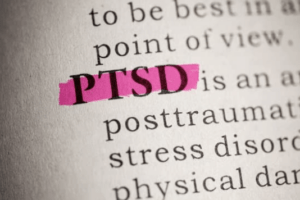
Several types of trauma-based psychotherapy treatments exist for veterans suffering from post-traumatic stress disorder (PTSD)—three of which are most commonly used: prolonged exposure, cognitive processing therapy, and eye movement desensitization and reprocessing. Across all three types of trauma-focused psychotherapy, 53 out of 100 people treated will no longer experience PTSD after a period of around three months.
Prolonged Exposure PTSD Therapy
This therapy approach trains you to gain control by facing your fears. In general, you will spend time conversing with a therapist and engaging in activities that you have been avoiding since the onset of your PTSD.
Call 1-888-373-4722 or complete a Free Case Evaluation form
Cognitive Processing PTSD Therapy
With cognitive processing therapy, you learn how to reframe negative ideas about the event or traumatic events that caused your PTSD. Your therapist will listen to you as you share the negative thoughts that preoccupy you. You will also tackle your condition with writing assignments and worksheets.
Eye Movement Desensitization and Reprocessing PTSD Therapy
This therapy technique invites you to process the trauma that led to your PTSD by calling to mind the event as you follow the back-and-forth motions of an object or sound.
Call 1-888-373-4722 or complete a Free Case Evaluation form
Comprehensive List of PTSD Therapies Categorized by Their Effectiveness
The U.S Department of Veterans Affairs (VA) and the Department of Defense (DoD) stay abreast of evolving therapies for PTSD. The above three trauma therapies have consistently proven themselves over the years to be effective. However, VA and DoD present information on all available therapies and even categorize them by their strength of recommendation from these agencies.
Strongly Recommended PTSD Therapies
- Brief Eclectic Psychotherapy (BEP)
- Cognitive Processing Therapy (CPT)
- Eye-Movement Desensitization and Reprocessing (EMDR)
- Narrative Exposure Therapy (NET)
- Prolonged Exposure (PE)
- Specific cognitive behavioral therapies for PTSD
- Written Narrative Exposure
Infrequently Recommended PTSD Therapies
- Interpersonal Psychotherapy (IPT)
- Present-Centered Therapy (PCT)
- Stress Inoculation Training (SIT)
Insufficient Evidence to Recommend for or Against
- Acceptance and Commitment Therapy (ACT)
- Couples Therapy
- Dialectical Behavior Therapy (DBT)
- Seeking Safety
- Skills Training in Affect and Interpersonal Regulation (STAIR)
- Supportive Counseling
VA and DoD have not issued recommendations against any existing PTSD therapies, aside from certain medications.
Call 1-888-373-4722 or complete a Free Case Evaluation form
VA’s DecisionAid Tool Can Help You Find the Best PTSD Therapy for You
People respond differently to therapy, just as they do to medications. VA provides an online DecisionAid tool to help veterans determine which form of PTSD therapy or medication might work best for them. After you answer a series of questions about yourself and your PTSD, the online tool will present you with its recommendation for an effective treatment.
You will also want to factor in other issues when selecting a PTSD therapy, including how much each treatment costs, whether the treatment is available close to where you live, and whether your schedule accommodates a specific treatment.
A Veterans’ Disability Benefits Advocate Can Help You Get the Benefits You Need
In addition to therapy, VA also offers disability benefits for your PTSD if you qualify. A VA disability advocate can help you file an appeal for denied veterans disability benefits. Receiving the right monthly compensation can make viable certain treatments that otherwise might not have been affordable for you. Call (888) 373-4722 today for more information.
Call 1-888-373-4722 or complete a Free Case Evaluation form






